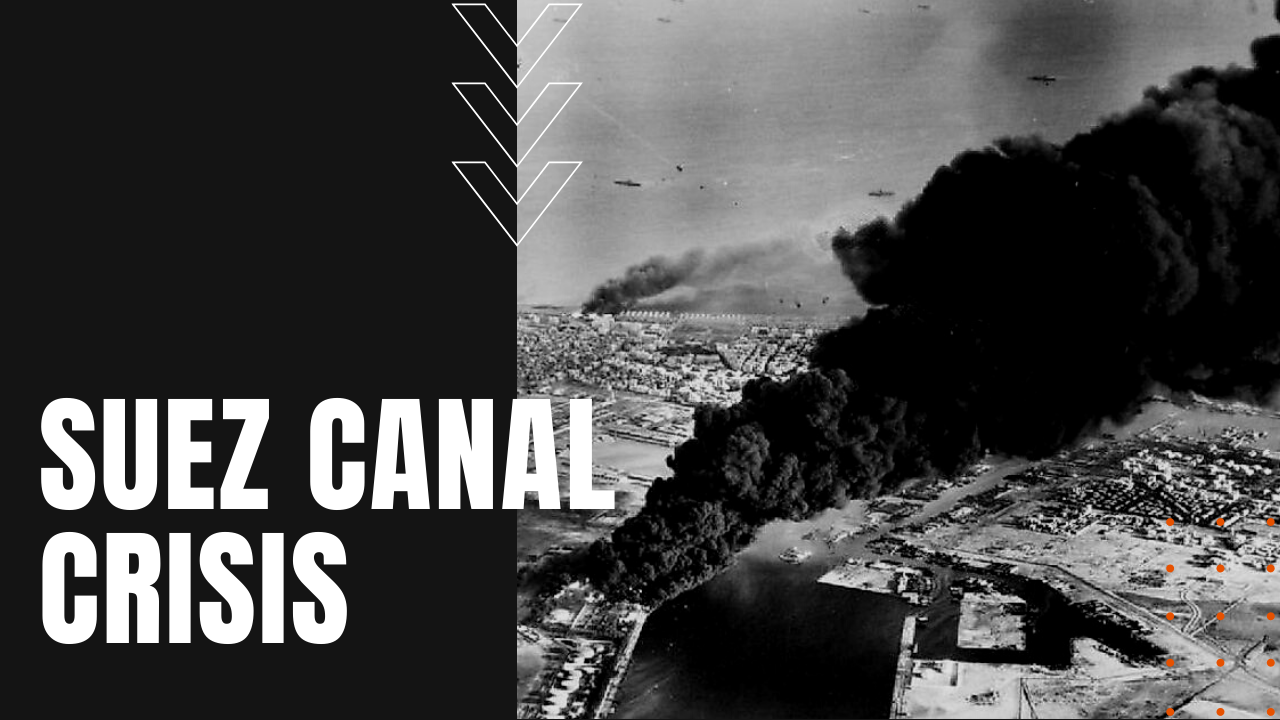Suez Canal Crisis of 1956

With the Cold War in full tension, in 1955, Egypt began accepting Soviet arms and money after the United States reneged on their promise to fund construction of the Nile River Aswan Dam project, prompting Egyptian leader Gamal Abdel Nasser to seize the Suez Canal from co-owners Britain and France, with the thought of funding his dam project with tolls collected on transiting ships.
Anthony Eden’s Response
British Prime Minister Anthony Eden was outraged, and he quickly cobbled together a military coalition between Britain, France and Israel, with the objective of retaking the canal zone. The Israelis were first to strike Egypt on October 29th, 1956, followed by Britain and France two days later due to ongoing political hesitancy and logistical delays.
Seen as an opportunity for Britain and France to flex their waning influence as one-time superpowers, Soviet leader Nikita Khrushchev threatened to rain down nuclear missiles on Western Europe if the Tripartite aggressors refused to withdraw their forces, which in turn prompted U.S. President Dwight D. Eisenhower to caution the Russian leader over reckless talk of nuclear war, warning that any intervention in the canal zone by the U.S.S.R. would be met with decisive military reprisals.
US Flexes Dominance
While Eisenhower urged France, Britain and Israel to withdraw from Egyptian soil, Washington was particularly upset with Britain, since the close American ally failed to inform the U.S. in advance of their strikes on key Egyptian targets. Eisenhower would go on to threaten all three aggressor nations with economic sanctions, which ultimately encouraged the French and the British to withdraw their forces in December of 1956, while Israel finally bowed to U.S. pressure in March of 1957, officially handing control of the Suez Canal back to Egypt and the now triumphant and wildly popular Abdel Nasser.
The Suez Crisis also marked the first deployment of a United Nations peacekeeping force known as the United Nations Emergency Force, which was dispatched along the canal zone to supervise the end of hostilities and the successful withdrawal of all Tripartite forces. Once the seat of two great empires, the Suez Crisis further weakened the international status of both Britain and France, leaving the United States and the Soviet Union to become the dominant powers in world affairs.
For his hawkish blunder in Egypt, Prime Minister Anthony Eden resigned from office, two months after Britain’s stand down from the Middle East.
